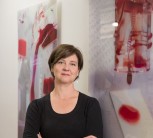More than half a million lives are lost to malaria each year, according to the World Health Organisation (WHO). And about 40% of the world’s population lives under constant risk of malaria infection.
This mosquito-borne disease remains a major public health, socio-economic and developmental challenge. Sub-Saharan Africa continues to be hardest hit with 89% of malaria cases and 91% deaths in 2015 alone.
What’s more, malaria control programmes are being threatened by rapid developing drug- and insecticide-resistant forms of the malaria parasite and the mosquitoes that carry it.
“One of the main factors adding to the struggle against the disease is that previously its complexity wasn’t really considered. We now know that we cannot target any of the disease’s three role-players (humans, mosquitoes and parasites) separately,” says Prof Lyn-Marie Birkholtz, Head of the Malaria Parasite Molecular Laboratory (M2PL) and SARChI Chair in Sustainable Malaria Control.
The solution lies in an integrated strategy that is adaptive, coordinated, and can continuously provide novel ways controlling all aspects of the disease – and maintaining this until it is eradicated globally, says Prof Birkholtz.
Malaria is caused by parasites and compared to the mosquitoes, which transmit these parasites to humans, they are more intricate and difficult to control. “We are fighting five species of plasmodium parasites which have adapted to the cold-blooded mosquito, as well as humans. They can be found in an infected person’s red blood cells and this means they are unlimited in their ability to cause disease and unfortunately, can also in rare cases spread through blood transfusion, sharing of needles etc.,” she explains.
Moreover, the parasites aren’t single entities. They change shape eight times during their life cycles and each form is different. “Antimalarial strategies targeting the parasite have to consider all of these variables – for treatment and preventing further transmission,” she says.
Identifying transmissible forms of the parasite is as important. Prof Birkholtz says this can be really difficult – patients can carry the parasite for months without knowing it. “With improved diagnosis of malaria parasite carriers and treating them effectively, we will be able to eliminate malaria.”
In Prof Birkholtz’ laboratory, the team focuses on two main questions: how to identify patients carrying malaria parasites and how to block these parasites from being transmitted between humans.
They lead a project that will allow the South African Malaria Control programme to identify patients that are malaria parasite carriers but do not necessarily show symptoms. The team has also taken a new and innovative approach to of discovering new malaria drugs able to prevent transmission – they combine information on the genomes of malaria parasites to discover new antimalarials.
The expertise of Prof Birkholtz and her team in the search for antimalarial drugs has led to the recent establishment of the South African Malaria Transmission-Blocking Consortium (SAMTC). Consisting of leading local researchers, the SAMTC is unique in the African context – this research platform aims to deliver antimalarials to eliminate malaria on the continent, if not worldwide. Internationally leading, the SAMTC partners with various other agencies working towards malaria elimination. This ability to identify malaria transmission blocking drugs is a major breakthrough for South Africa and Africa as whole and paves the way towards success in malaria elimination strategies on the continent.
For more information, contact Prof Birkholtz on: [email protected]
For an overview of her research: https://www.researchgate.net/profile/Lyn-Marie_Birkholtz/publications
Prof Lyn-Marie Birkholtz
January 1, 2015

 Story
Story
University of Pretoria (UP) researchers have found that the antioxidant content of certain types of tea can be likened to that found in recommended portions of fruit and vegetables.
 Infographic
Infographic
Half a cup of black tea, oolong tea or green tea contained the same amount of antioxidants with radical scavenging capabilities (RSC) as that of a 200mg vitamin C tablet.
 Story
Story
Researchers at the University of Pretoria (UP) may have identified the gene that is responsible for diet-related obesity. By exploring the role of the novel gene Slc7a8, they have made a potential breakthrough in current knowledge about the cellular mechanisms that drive fat accumulation. This understanding is crucial in developing effective treatments.
Copyright © University of Pretoria 2025. All rights reserved.
Get Social With Us
Download the UP Mobile App